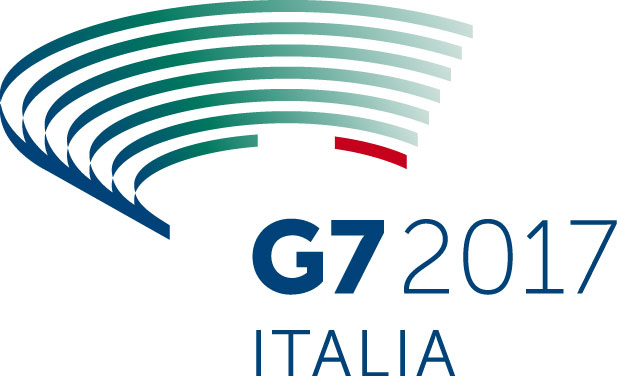
Summits | Meetings | Publications | Research | Search | Home | About the G7 Research Group
Follow @g7_rg

 |
Summits | Meetings | Publications | Research | Search | Home | About the G7 Research Group Follow @g7_rg |
 |

Annex 4:
G7 Expert Group on Open Science
Turin, Italy, September 28, 2017
[PDF]
See also
G7 Science Ministers Communiqué
Annex 1: G7 Future of the Seas and Oceans Working Group — Progress Since May 2016
Annex 2: Report of the Group of Senior Officials on Global Research Infrastructures
Annex 3: G7 Working Group Neglected Tropical Diseases and Poverty Related Diseases
The G7 Open Science Working group (OS WG) recognizes that an international approach for some actions can help the speed and coherence of the transition towards Open Science. Overall, the G7 Open Science Working Group recommends that each G7 nation convene and engage with relevant stakeholders who can support moves towards incentivizing the increased adoption of Open Science in their national context.
Alongside these efforts, it would be useful for G7 nations to continue sharing their perspectives and progress on developing policies and fostering adoption of Open Science principles and practices, and working together to find common areas of action to support more effective implementation of Open Science practices. The OS WG focused its efforts on developing recommendations for two important aspects of Open Science: Incentives and Infrastructure, as described below.
Ambition: Foster a research environment in which career advancement takes into account Open Science activities, through incentives and rewards for researchers, and valuing the skills and capabilities in the Open Science workforce.
Recommendations:
At national levels: G7 nations should each engage with research stakeholders to identify and implement enhancements to research evaluation and reward systems that take into consideration the Open Science activities carried out by researchers and research institutions. Topics that could be discussed include:
Potential future discussion at the G7 level: Consider approaches towards developing principles, for measuring the quality and impact of research enabled by Open Science practices. Discussions could also include means to identify, promote and implement best practices for Open Science, for example, through codes of conduct that build on existing procedures. This might lead to international consensus on the roles and responsibilities of researchers, institutions, and funders under Open Science.
Ambitions: All researchers are able to deposit, access and analyse scientific data across disciplines and on international scales. Research data management adheres to the FAIR principles whereby data is findable, accessible, interoperable, and reusable. Recommendations:
At the national level: G7 nations can each work to promote the development of practices and the use of technologies and infrastructure in the research community that foster Open Science principles and data sharing, including:
Potential future discussion at the G7 level: Establish a forum for continued multilateral discussion to share information about major research data infrastructure initiatives in G7 countries and beyond. Discussion objectives could include:
These actions will help to ensure good communication and coordination, among of the numerous initiatives that are under way in countries around the world that aim at professional research data management and sharing.
Source: Official website of the 2017 Italian G7 Presidency
 — 
|
This Information System is provided by the University of Toronto Libraries and the G7 Research Group at the University of Toronto. |
|
Please send comments to:
g7@utoronto.ca This page was last updated September 29, 2017. |
All contents copyright © 2024. University of Toronto unless otherwise stated. All rights reserved.